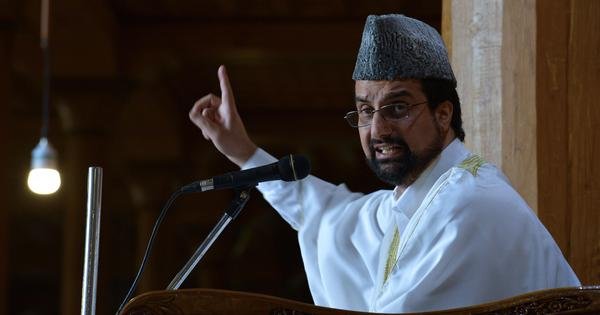12 Separatist Groups in Kashmir Break Away from Hurriyat Conference
A Major Change in Kashmir Politics
Union Home Minister Amit Shah revealed that 12 separatist groups in Kashmir have broken away from the Hurriyat Conference, a prominent alliance of separatist organizations in the region.
Groups That Parted Ways
- JK Peoples Movement
- JK Democratic Political Movement
- JK Tahreeki Istiqlal
- JK Tahreeki Istiqamat
- JK Islamic Political Party
- JK Muslim Democratic League
- Kashmir Freedom Front
- JK Mass Movement
The wife of the Jammu and Kashmir Salvation Movement leader also confirmed the group’s separation from separatism. The identities of the remaining three groups are yet to be disclosed.
Effect on Separatist Politics
Since 2019, the space for separatist politics in Jammu and Kashmir has shrunk significantly. The Narendra Modi government’s decision to revoke Article 370 and split the state into two union territories resulted in a crackdown on several groups and the arrest of influential leaders.
According to Shah, the departure of these 12 groups indicates the ongoing decline of separatist sentiment in the Valley.
Viewpoints of Political Observers
However, political observers in Jammu and Kashmir are cautious about interpreting this development, as many of these groups are relatively unknown and have little sway in the Valley.
The All Parties Hurriyat Conference
The All Parties Hurriyat Conference is an alliance of around 30 social, religious, and political groups that emerged on July 31, 1993. Its core belief is that Jammu and Kashmir is a ‘disputed territory’.
Although its members differ on their desired outcomes, they are united in their demand for the right to self-determination for the people of Jammu and Kashmir, in line with United Nations resolutions advocating for a plebiscite.
The Influence of Hurriyat Leaders
The top tier of Hurriyat Conference leaders, such as Syed Ali Shah Geelani, Mirwaiz Umar Farooq, and Yasin Malik, held significant influence over the Valley’s politics. Their calls for hartals or protests could shut down the Valley for weeks.
In 2004, a faction of the Hurriyat led by Mirwaiz Umar Farooq engaged in a dialogue over Kashmir with the Atal Bihari Vajpayee-led National Democratic Alliance government.
The Future of Separatist Politics
Political observers argue that the decision of these groups to abandon separatism is not significant enough to signal the end of separatist politics in Jammu and Kashmir. The demise of separatist politics in the region can only be declared if senior or prominent figures of the Hurriyat announce their withdrawal from advocating for the resolution of the Kashmir dispute.



